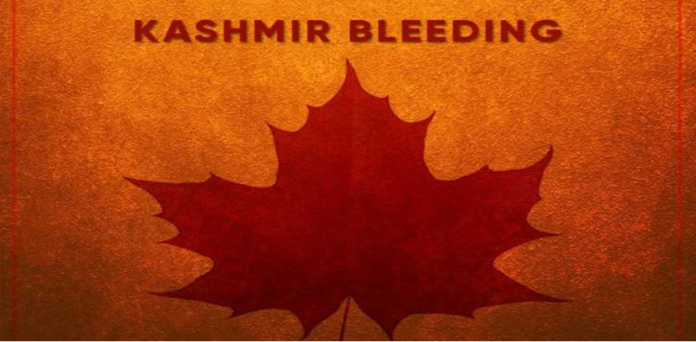By: Dr. Sahibzada Muhammad Usman
Pakistan firmly stands with the people of Kashmir in their struggle to the very end. The day of February 5, known as Kashmir Solidarity Day, serves as a clear reminder that the people of IIOJK deserve to live in peace and dignity. It commemorates the end of 73 years of the Kashmiri people’s tenacious fight against India’s heinous human rights abuses and ongoing military blockade.
The British East India Company’s colonial endeavor, which resulted in the sale of IIOJK to a Dogra Hindu monarch under the 1846 Treaty of Amritsar after the first Anglo-Sikh War, is where the Kashmiri people’s fight began. Muslims made up 77% of the state’s overall population at the time. During the subsequent 100 years of the Dogra administration, Kashmir’s Muslim majority merely gathered frustration.
The people of Kashmir were optimistic in the mid-twentieth century that they would exercise their right to control their fate as the spirit of decolonization permeated every colonial area globally. However, the biggest tragedy for the Kashmiri people occurred in 1947, when they were again written off to a neo-imperial Indian state without their consent.
India took the case to the UN because it was afraid that the people of Kashmir would rise. India agreed that Kashmir was an international conflict that could only be solved by the people of Kashmir through a referendum that the UN had ordered. In its 1954 constitution, India recognized the unique position of the Kashmiri people and granted IIOJK, the only Muslim-majority state in the nation, special semi-autonomous status.
IIOJK is now both the most militarized area and the biggest open-air jail in the whole globe. The ratio of security troops to citizens is around one to nine due to the more than 900,000 Indian military and paramilitary soldiers stationed there. India has been using the draconian Armed Forces Act of 1990, the Unlawful Activities Prevention Act of 1967, which was amended in 2019, and the IIOJK Public Safety Act of 1978, a preventive detention law denounced as illegal by the Jammu and Kashmir Coalition of Civil Society, to grant its forces unprecedented powers in order to continue its occupation. As a consequence, Kashmiris have been subjected to a cruel and oppressive crackdown for wanting to exercise their right to self-determination in line with UNSC resolutions.
Crimes against humanity committed in IIOJK have been recorded in several reports by the UN, international humanitarian organizations, and nongovernmental groups, including those in India. The High Commissioner for Human Rights, Michelle Bachelet, expressed worry about the state’s worsening position during the 46th session of the UN Human Rights Council, which was held in February last year. She said the Office of the High Commissioner for Human Rights would keep an eye on the situation in IIOJK, where communication restrictions and crackdowns on civil society activists continue to be of grave concern.
The Secretariat of OIC and its Independent Permanent Human Rights Commission have also released several comments and studies denouncing India’s unlawful and unilateral activities as well as the significant human rights abuses in IIOJK. In its sessions, the last of which was held on February 5, 2021, the OIC Contact Group on Kashmir has repeatedly reaffirmed its support for the right of the Kashmiris to self-determination, criticized India’s unilateral measures, and urged for their cancellation.
One of the longest unsolved international crises today is the Kashmir dispute. Kashmir is a political problem, but it is also a matter of international humanitarian law and human rights. The world seems unconcerned with certain academics’ predictions of a genocide against Muslims in India, particularly in Kashmir. The world community has retreated in the previous twenty years, as shown by the signs of halted moral progress that are now present.
Pakistan and its army will not allow the people of Kashmir to go down in history as a mere footnote. Pakistan will always uphold the constitutional rights of Kashmiri residents and provide the brave people of Kashmir with all necessary moral, political, and diplomatic assistance. Without resolving the Kashmir conflict in accordance with UNSC resolutions, the region cannot experience enduring peace.
About Author:
Dr. Sahibzada Muhammad Usman
Research Scholar and Academic; Ph.D. in Political Science at the University of Pisa, Italy. Dr. Usman has participated in various national and international conferences and published 30 research articles in international journals.
Email: s.usman@studenti.unipi.it






